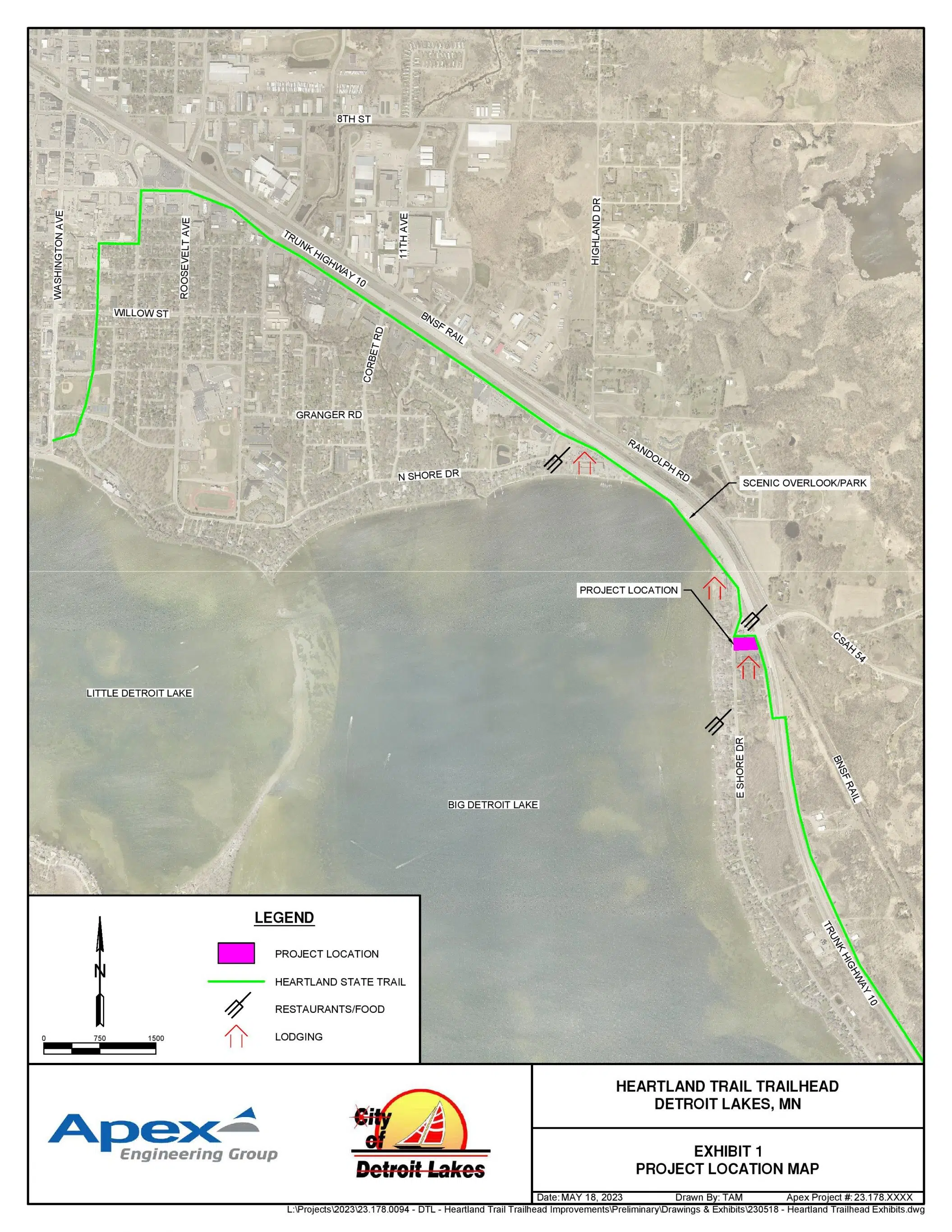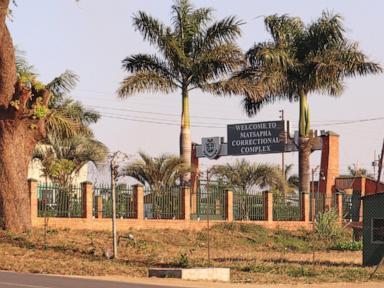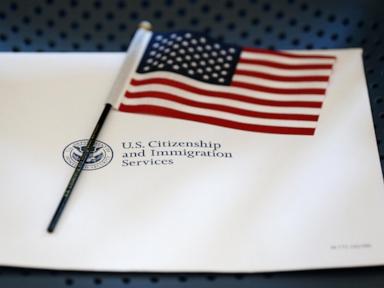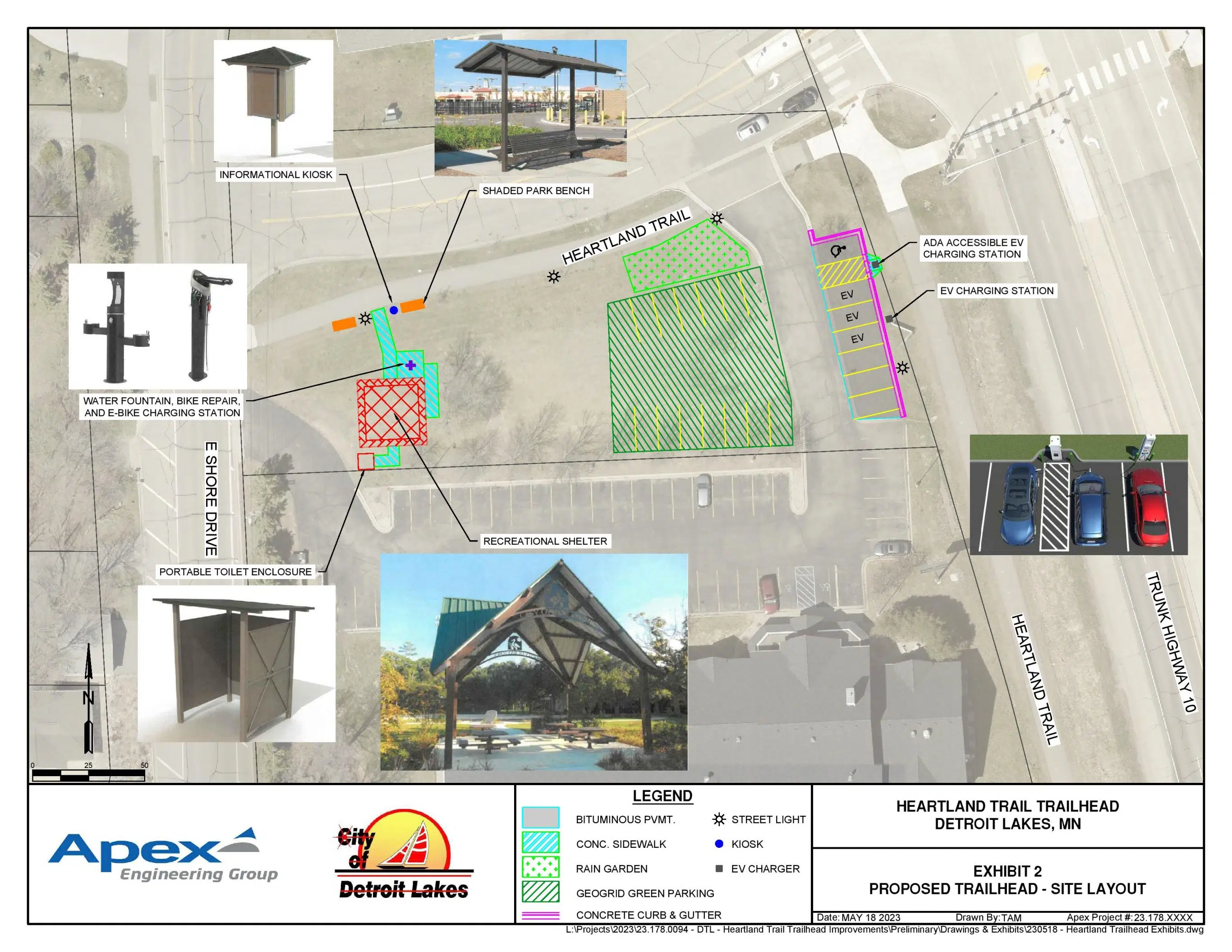Detroit Lakes, Minn. (KDLM) – The city of Detroit Lakes is expected to approve and apply for a MnDOT grant on Wednesday for the state’s carbon reduction program.
The project would add a trailhead to the start of the Heartland Trail in Detroit Lakes and also add electric vehicle charging stations to a nearby parking area.
Jon Pratt, city engineer for Detroit Lakes, said they hope to add parking for up to a dozen cars so more people can drive up and utilize the trail.

Designs for a Heartland Trail trailhead off East Shore Drive. (Contributed / Detroit Lakes)
“We’ll do some small parking lot improvements,” said Pratt. “There will be some paved spaces and some, what we would call, green parking spaces that are just reinforced turf.”
Pratt also said he didn’t want to call the project area a park, but it would have some similar elements.
“I hesitate to call it a park, but a trailhead, so there will be a picnic shelter with a concrete slab and kind of a privacy screen to be able to put up a restroom or porta-potty,” said Pratt. “There will be a water fountain and bottle filling station, and then a bike repair station and then a couple of sun screened structures that are going to go along the existing trail. So, if folks have been along there and they just want a spot to sit down out of the sun, they can do that. And then we’ll prolly do a few trees and things of that nature.
The trailhead will be located at the East Shore Drive and County Road 54 intersection, between Casey’s General Store and the Country Inn and Suites hotel.
One thing that was holding up the project, Pratt said, was the cost.
“We hadn’t fully figured out how, one, to pay for it, and two, what it was going to consist of, but this program kind of provided an opportunity to maybe advance that thing,” he said.
Total project cost for the trailhead project is about $500,000, and if the grant application is approved, the city will be responsible for $100,000, or about 20% of the total project cost.
Minnesota’s carbon reduction program was established in 2021 as part of the Infrastructure Investment and Jobs Act and has an annual program budget of $1.2 billion.
The state is expected to receive about $20.5 million annually from the program.

Latest News





